Toyota Corolla (E120) 2002–2008 Repair Manual / Diagnostics / Sfi system / Idle air control System/ Circuit / Circuit description
Toyota Corolla (E120): Circuit description
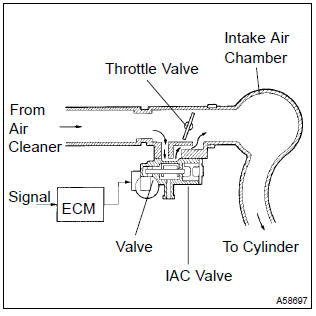
The rotary solenoid type idle air control (iac) valve is located under the throttle body and intake air bypassing the throttle valve flows into the iac valve through the passage.
In this way the intake air volume bypassing the throttle valve is regulated, controls the engine speed.
The ecm operates the iac valve only to perform idle–up and provide feedback for the target idling speed.

Monitor description
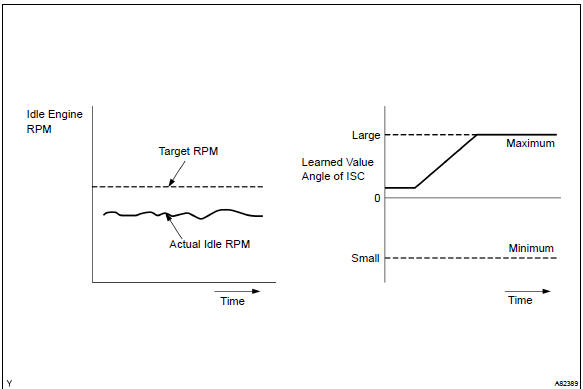
The idle speeds are determined depending on the volume of air that passes through the iac valve. When the volume is large, the idle speed becomes higher. When the volume is small, the idle speed becomes lower.
The iac valve controls the air volume that bypasses the throttle valve. The engine control module (ecm) sends duty signals to the iac valve and drives the iac valve stepper motor to determine the air volume that bypasses the throttle valve.
Although the ecm regulates the idle engine rpm with the feedback control in several vehicle stopped, actual idle rpm does not reach the targeted rpm and a learned valve angle of the idle air control (iac) remains at the maximum or remains at the minimum, the ecm determines to detect malfunction in the iac system.
Example: if the rpm difference between the targeted and actual idle engine rpms exceeds 200 rpm (*1) with the vehicle stopped in an idle, and this occurs 5 times, or if the learned value angle of the iac remains at its maximum or minimum angle for 5 seconds, p505 is detected.
P0511 is detected as an open/short circuit in the iac if the rate of duty signal input to the iac valve has stuck at 0 or 100 %.
*1: Threshold rpm is varied by an engine load.
Monitor strategy

Typical enabling condition
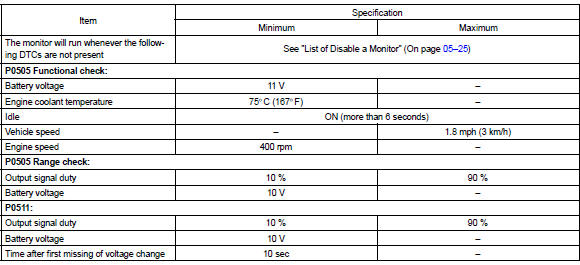
Typical malfunction thresholds
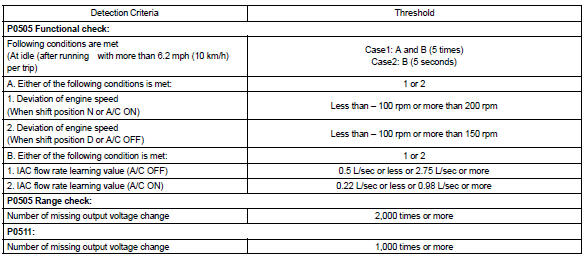
Component operating range

Wiring diagram
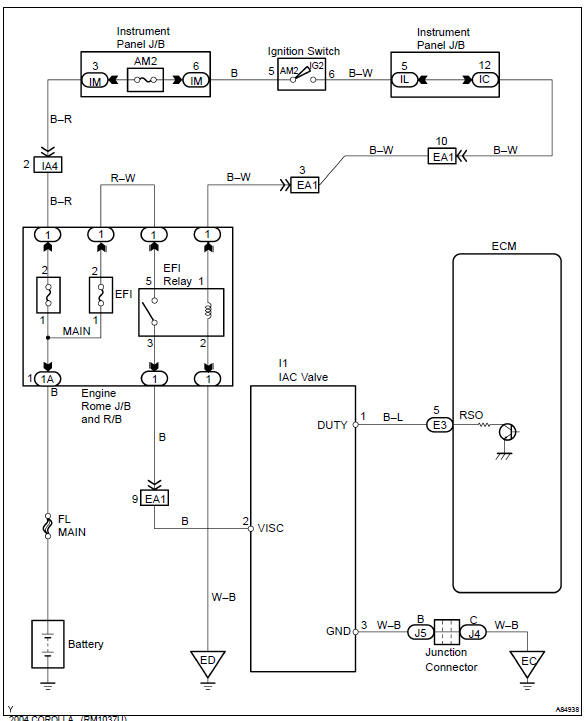
Other materials:
Problem symptoms table
Hint:
use the table below to help determine the cause of the problem. The numbers
indicate the priority of the
likely cause of the problem. Check each part in order. If necessary, replace
these parts.
1. Headlamp and tail lamp
2. Front fog lamp system
3. Turn signal and hazard warni ...
Inspection procedure
1 Check source voltage
Measure the voltage of the battery.
Ok:
voltage: 10 – 14 v
2 Check air bag sensor assy center
Disconnect the negative (–) terminal cable from the battery, and wait at
least for 90 seconds.
disconnect the connectors from the airbag sensor assy ...
For vehicles equipped with catalytic converter
Caution:
if large amount of unburned fuel flows into the converter, it may cause
overheating and a fire hazard.
To prevent this, observe the following precautions.
Use only unleaded gasoline.
avoid prolonged idling.
Avoid running the engine at idle speed for more than 20 minutes. ...


